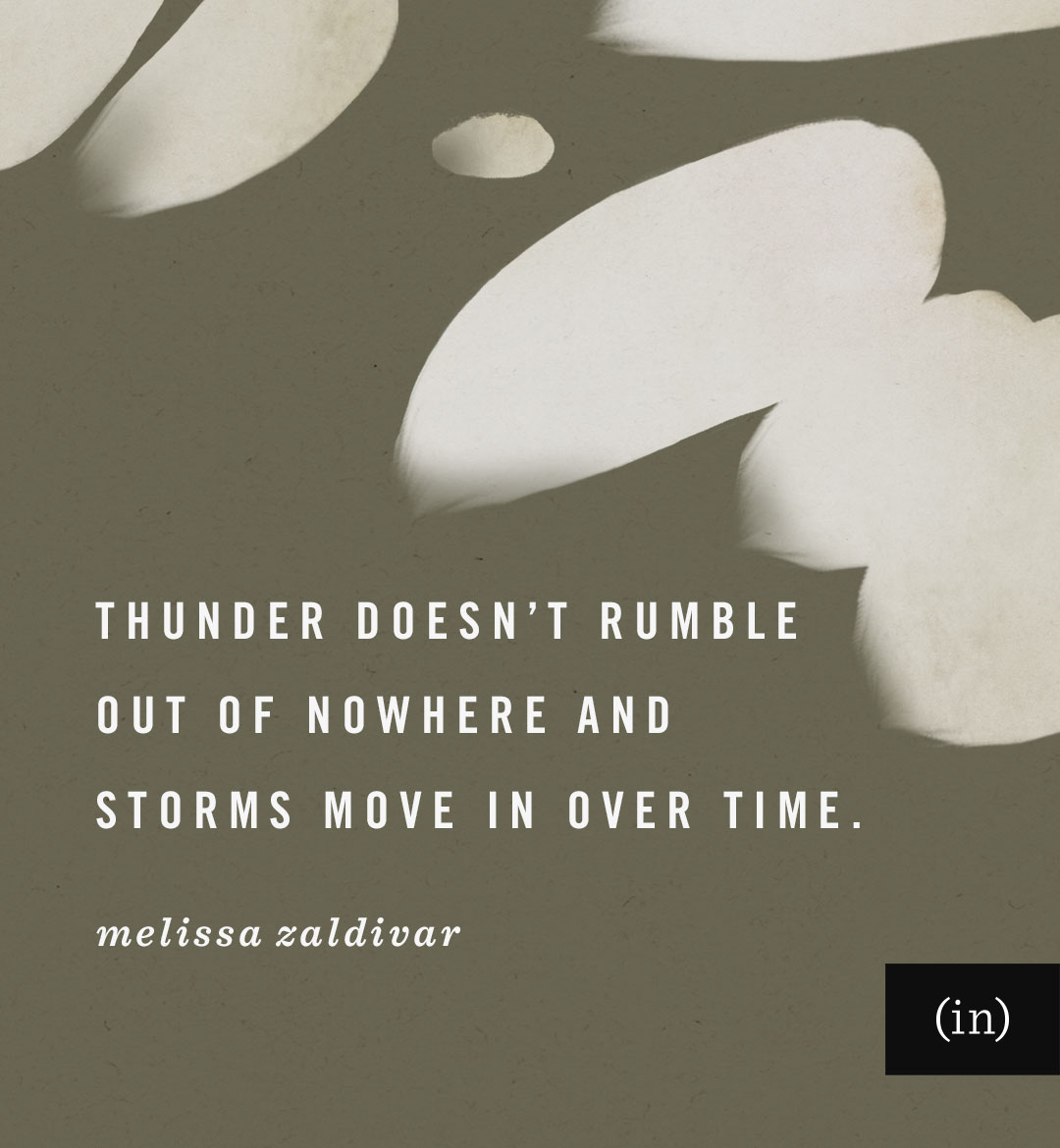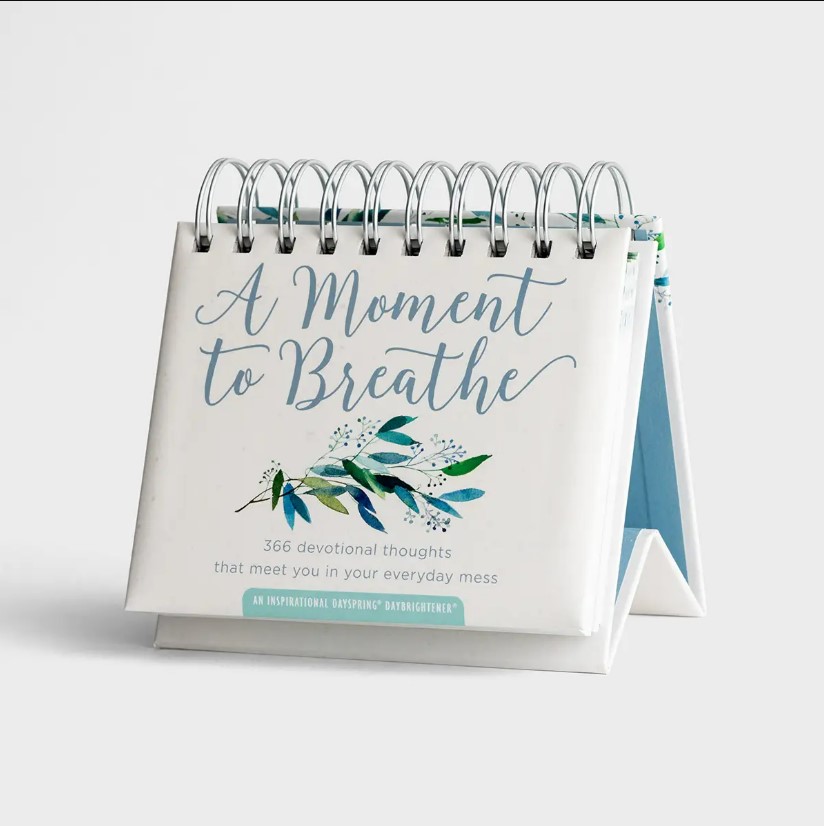The first time I moved to New England it was for seminary. As a student, I wasn’t very aware of what was around me. I was there to study and stayed mostly on campus. I didn’t really know what was going on in the community beyond my church on Sunday mornings. But I did work at a local country club, teaching golf lessons, caddying, and selling pro shop merchandise. It was there that I first started to pay attention to the weather.
We would always have Doppler radar open on the computer and could tell when a storm was rolling in. We knew how to watch for shifts in the wind and the humidity because there’s nothing worse on a golf course than thunder and lighting. Turns out, you don’t want to be holding a metal pole in the air when it strikes.
When the storm was too close for comfort, we started standing by the door, waiting for the first distant rumble and once it was heard, we sprung into action. Grabbing a nearby golf cart, our resident golf pro would hop in and speed to the top of the course with an airhorn in his hands. He would fly up the hill to the highest point and blast the horn, signaling that it was time for golfers to come in.
It was not optional and it was imperative to their well-being that they make their way (quickly) to the clubhouse. We would grab their clubs, shuttle them to the parking lot, and wish them well, never giving them the option to risk staying out on the course. Avid golfers will stay on course in all kinds of conditions — wind, fog, rain, even snow —but the moment thunder rolls, all bets are off.
Those years built some sort of internal radar in me so much that I’m often the person in my friend group who knows the exact weather on any given day. I can tell you what conditions are ahead, not because I’m anxious, but because I’ve learned to pay attention. Thunder doesn’t rumble out of nowhere and storms move in over time.
Sometimes, when I start to pay attention to my own heart, I can sense when a storm is coming. When I am not spending time in God’s Word or haven’t been getting enough sleep or things are stressful for whatever reason, it wears on me and starts to have consequences. Patience wears thin, perspective gets lost, and before I know it, words start to show up that strike and threaten to set fire to relationships or opportunities.
In Luke 6, Jesus says, “For the mouth speaks what the heart is full of.” And what He means is that when we say something unkind or brutally honest to the point of destruction, that was simmering in our hearts first. It wasn’t a sudden accident — it was on the radar beforehand.
Each morning, when I wake up, I check the weather and wind speed and conditions in the sky, and it’s a good practice to spend some time asking the Lord to meet me too. To ask, as the psalmist says, “Search me, God, and know my heart; test me and know my anxious thoughts. See if there is any offensive way in me, and lead me in the way everlasting” (Psalm 139:23-24 NIV).
Look for storms on the horizon, friend. Not just because you don’t want to get caught in the rain, but because when the thunder rolls, you’re in for danger if you don’t come back in.







Excellent analogy, Melissa, and the perfect verse to pray each morning as we start our days! Thank you!!
As a weatherman’s daughter this brings back fond memories! Way before cable & internet we could watch 5, albeit fuzzy, weather reports from NC, SC & GA by rotating the antentae on our back patio. Dad was fascinated by what was effecting our neighbors in the neighboring states. I was more interested in how it effected MY day! The connection to my behavior effecting others is a much wiser, mature perspective. May I be more attentive to the storms rolling in in my heart! Thank you for this wonderful post, Melissa! Blessings!!!
Oh, I love that. Thanks for joining us, Ruth.
Very encouraging thank you.
Thanks for this Melissa! I’m embarrassed to admit that my heart is awfully stormy lately and having a fair amount of trouble trusting that God loves me. Would you (and fellow readers) please pray that I find some peace and maybe a little bit of grace? Thank you so much.
Dearest Lord, meet Cheyla where she is in the midst of a storm. I don’t know what would touch her most but You do! Give her eyes to see & recount Your faithfulness in the scriptures but also in her own life. Use those stones to build her trust in You. You are peace & You are grace may she see You in tangible ways to weather this storm. Bring someone alongside her to be her cheerleader toward You and not the feelings & things trying to fill the space that only You can fill. Be magnified in her journey that not only Cheyla but others watching will praise You. In the Name of our precious Savior Who sees & hears our cries, Jesus, Amen! (((0)))
Thank you Ruth for such a beautifully articulated, genuine, heart felt prayer. Cheyla, I’m also lifting you up in prayer.
Amen, Amen!
Yes! Praying for you! Thanks for asking for prayer, brave friend.
Thank you and blessings to you all!!
Cheyla,
Abba Father,
Come near to Cheyla in her storms. Give her a calm spirit & shower her with your love. Remind her of your love & faithfulness. Allow her to see your goodness towards her. Take away the storms in her heart & give her rest & peace in her soul. AMEN
I too realize when I’ve not spent time enough time with God. It does feel like a storm brewing inside me. Jesus truly calms the waves.
Thank you Melissa for reminding me that “my” storms can sometimes pour all over someone else!
…and thank you for sharing this blessed morning prayer
“Search me, God, and know my heart; test me and know my anxious thoughts. See if there is any offensive way in me, and lead me in the way everlasting” (Psalm 139:23-24 NIV).
Have a blessed and calm day sisters \0/
Thank you for this. I hadn’t thought of the storms brewing first in my heart but they truly do!
Yes, they do, indeed! Glad you’re here, Ann.
An insightful analogy, Melissa. And those verses from Psalm 139 do provide a wonderful prayer to start the day. Unlike the thunderstorms of nature, we CAN avoid thunderstorms in our spirits. Thank you for showing us the way.
Thanks for this encouragement!
Thank you Melissa. A timely message.
Thanks for joining us!
Melissa,
I come from the lightning capital of North America- outside Tampa, FL. It would storm every day around 3pm for about 1 hr. or so. Knowing that you paid attention & were inside at that time. Lately I’ve had a super stormy heart. Things happening, stress & not much sleep add fuel to the fire. Today (8/7) at church right before taking communion I prayed this prayer “Search me, God, and know my heart; test me and know my anxious thoughts. See if there is any offensive way in me, and lead me in the way everlasting.”
Blessings 🙂